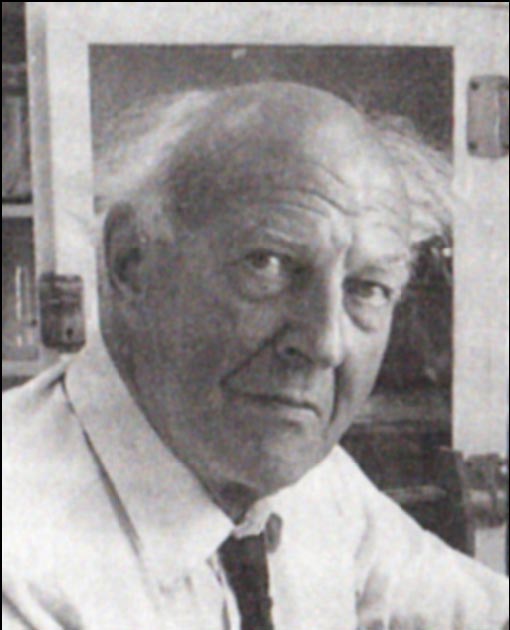Orthomolecular Medicine Hall of Fame
Inducted 2009“He may prove to be one of those people whose long term influence is far greater than ever seemed likely while he was alive”
-David Horrobin
Hugh Macdonald Sinclair, was one of the twentieth century’s outstanding experts in human nutrition. He was born in Duddington House, Edinburgh, Scotland, and went to Oriel College, Oxford to study Animal Physiology. He was appointed Departmental Demonstrator in Biochemistry, before going on to study Clinical Medicine at University College Hospital Medical School, London. Sinclair spent most of his working life as a Fellow of Magdalen College, Oxford, though he made many forays into a wider world, notably during the Second World War when he was involved in planning how the British could be properly nourished and in famine relief in the Netherlands and Rhineland.
Sinclair is most widely known for claiming that “bad fats” worsened what he called “diseases of civilization”, such as coronary heart disease, cancer, diabetes, inflammation, strokes and skin disease. He believed that diets deficient in essential fatty acids are the cause of most degenerative illnesses. Sinclair’s forceful arguments on this matter preceded firm scientific evidence, however. His self-experimentation, including the infamous 100 day seal-meat diet, dramatically demonstrated the importance of long-chain fatty acids of fish oils in decreasing the aggregation of platelets and thus the incidence of thrombosis. Sinclair’s main contributions were intellectual. He recognized the central importance of nutrition to human life and, at a time when it had become unfashionable, he constantly emphasized the importance of the right food for proper health. In a famous letter to the Lancet in 1956, he made a particular contribution in identifying the crucial role of essential fatty acids in health, which readers classed as either visionary or lunatic, depending on their point of view. His letter foreshadowed half a century of research on a nutritional topic which is steadily increasing in importance.
Sinclair’s greatest dream was to establish an international centre for the study of human nutrition. He argued that nutrition is an important area of science in its own right, and that new insights into the relationships between food and human health should guide developments in medicine, agriculture, and food technology. Many of his ideas have relevance for us today.



